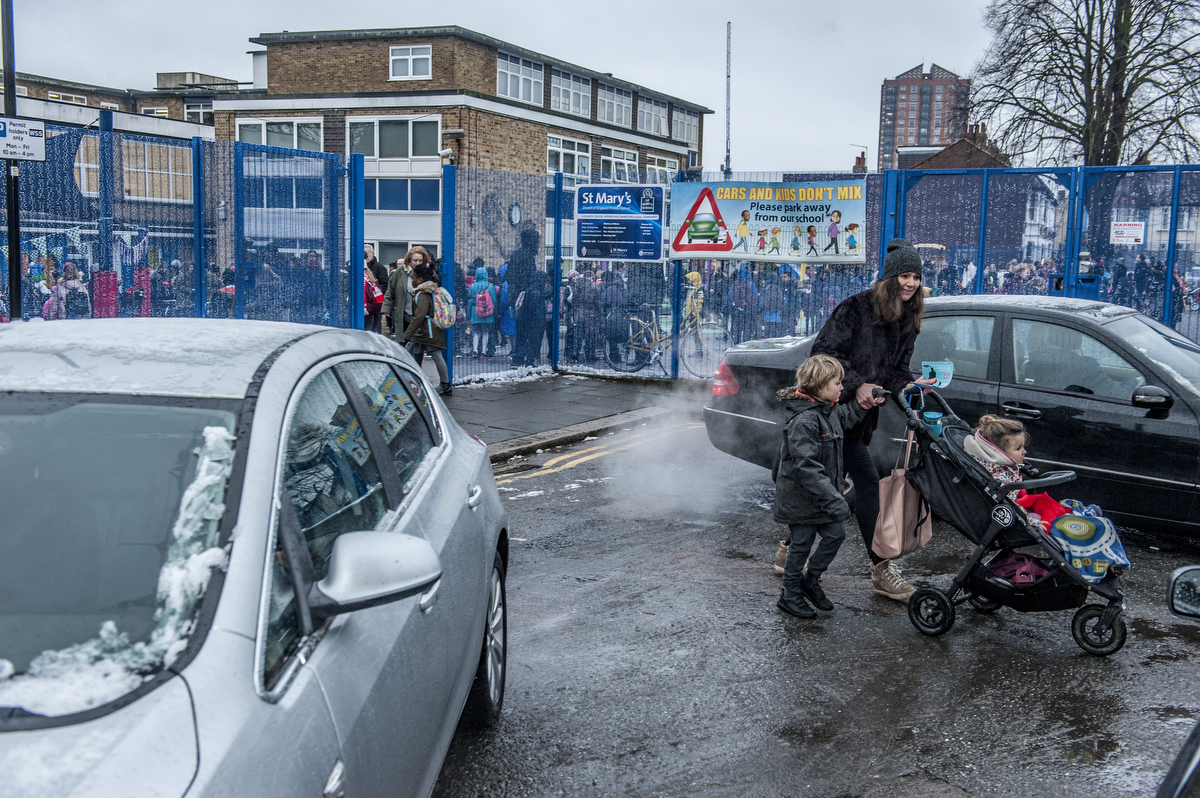- Switching to electric vehicles, in combination with clean power sources, would prevent millions of illnesses among children, according to the American Lung Association (CNN). But the transition hasn't been easy, and probably won't be until EVs become more cost-competitive (Wired).
- Street grids are making a comeback after generations of planning that isolated people in favor of moving cars (The Atlantic). For example, in Cincinnati a grassroots group led by two former mayors wants to create a new street grid in conjunction with the Brent Spencer Bridge reconstruction to avoid past urban planning mistakes that divided Black neighborhoods. (BNN)
- Seven of the 10 most dangerous communities for biking in the U.S. are in Florida, according to a law firm's analysis of National Highway Traffic Safety Administration data. (The Guardian)
- Amtrak is proposing two new routes in the Pacific Northwest, one running from Seattle to Denver and the other from Seattle to Chicago. (The Urbanist)
- A commuter group is calling for the Chicago Transit Administration's director to be fired due to the increasing unreliability of service. (Chicago Magazine)
- The Maryland Transit Administration received a $213 million federal grant to buy 52 new light rail cars. (CBS News)
- The Atlanta city council outlawed right turns on red, but only in certain neighborhoods. (Georgia Public Broadcasting)
- Speeding drivers keep crashing into buildings on Cincinnati's Virginia Avenue, leading residents to call on the city to do something about it. (WCPO)
- WTKR delves into Norfolk's Vision Zero plan as part of a series on rising pedestrian deaths.
- A new Bike Walk Macon report highlights the Georgia city's initiative to close streets to cars at times to allow children to play. (41 NBC)
- Athens, Georgia, has a new plan to slow down drivers and prevent rising traffic deaths. (Flagpole)
- An Albany, New York startup is developing public e-bike and scooter chargers for bikeshares. (Times Union)
Today's Headlines
Thursday’s Headlines Breathe Freely
If every driver started buying electric vehicles powered by clean energy, it would prevent millions of respiratory illnesses. But the market has slowed down significantly.

Are the people in this photo inherently “vulnerable”, or are the cars inherently dangerous?
|Nick CunardStay in touch
Sign up for our free newsletter
More from Streetsblog USA
Wednesday’s Headlines Have Consequences
The Trump administration's actions on climate change have consequences for future generations. Industries might not like what they get in return.
Trump’s Canada Bridge Tantrum Could Be Bad News For An International Bike Trail
A multi-use trail along the Gordie Howe Bridge would be a key component of an epic cross-continental trail route — if Trump doesn't prevent the entire structure from opening.
Disturbing Utah ‘Bikelash’ Bill Takes Aim at Salt Lake City Traffic Calming
Utah state legislators aren't traffic engineers — so why are they writing laws that would force the review of specific bike lanes already on the roads in their capitol, and preemptively stop Salt Lake from building more?
The Explainer: How Big Tech Push For Cheap Car Insurance Hurts Victims
In New York State, Gov. Kathy Hochul is distorting the notion of "affordability" to do Big Tech's bidding.
Tuesday’s Headlines Let Kids Be Kids
Cops should not be arresting parents for letting their kids walk or bike around the neighborhood.
Monday’s Headlines Slow Down
Cities have proven measures they can put into place to slow down speeding drivers and save lives.





